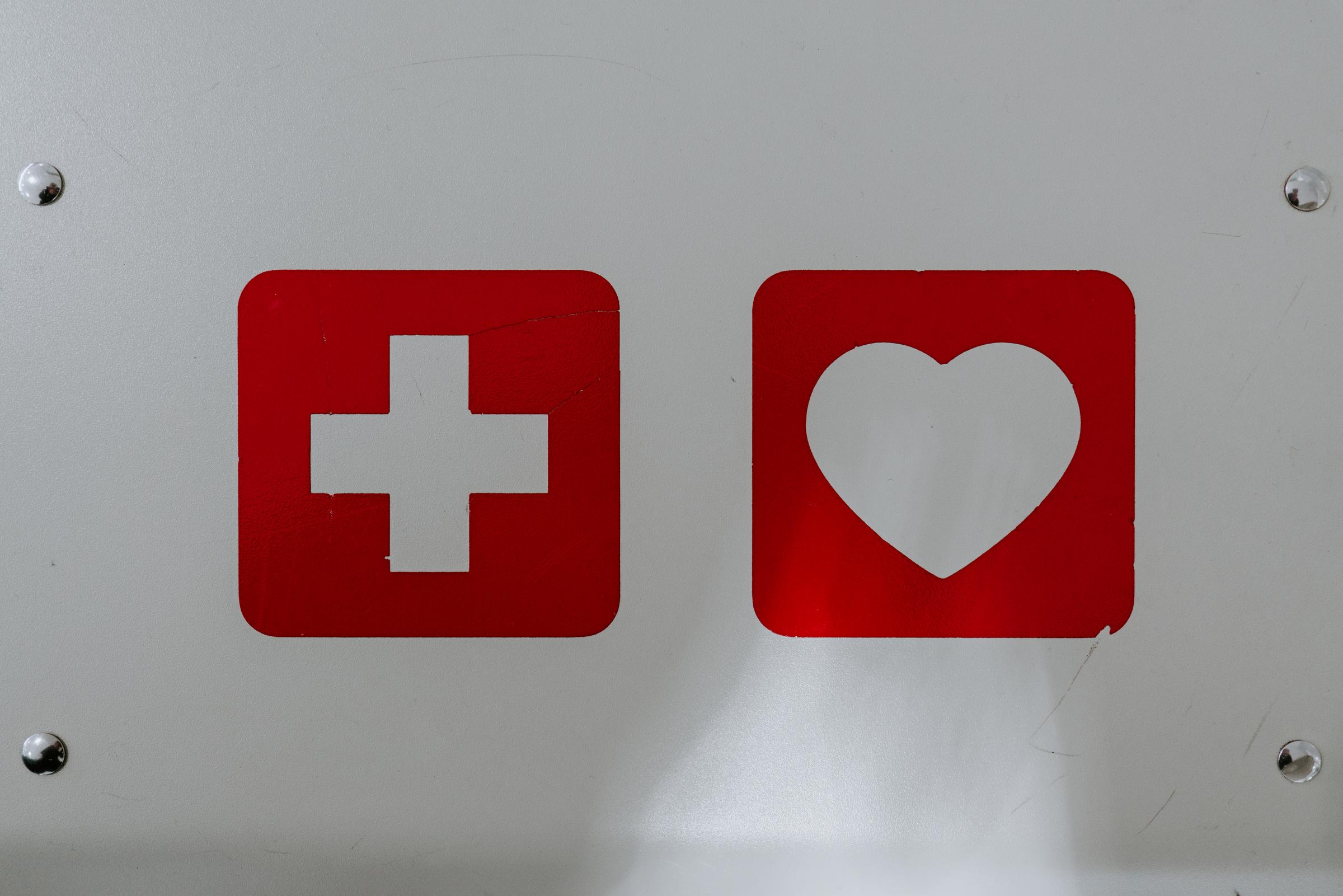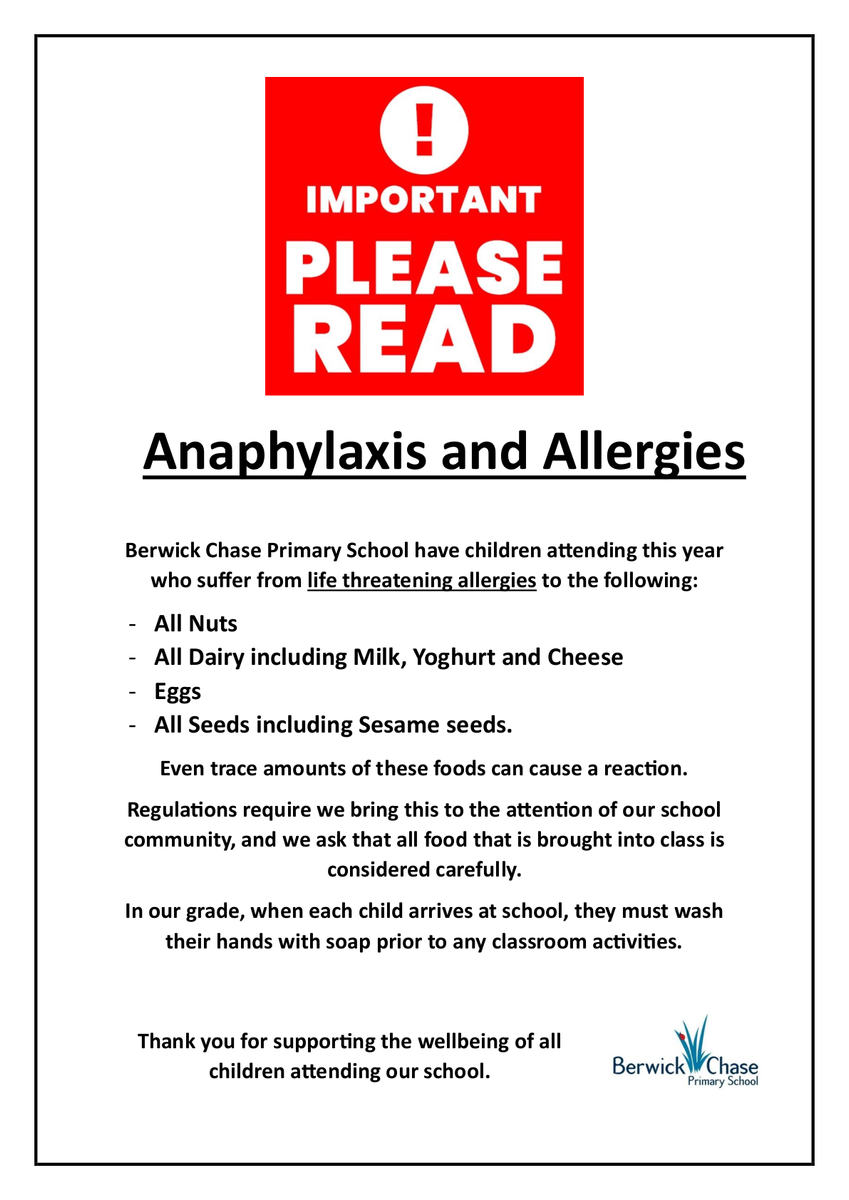First Aid News

Illness
Children with diarrhoea or vomiting should stay away from school until they have not had diarrhoea or vomiting for at least 2 days (48 hours). Please note that any Antibiotics that need to be administered 3 times a day should be given at home i.e. before school, after school and before bed. All other medications, if required, MUST be signed in via sickbay or the office. Please ensure all Asthma Plans, that are held at school, are current for your child and that they have the required medications and a spacer. Also please ensure your emergency contacts are up to date in case we are required to contact you for any reason, and respond to any messages left by the school as soon as possible. We appreciate your compliance in these matters and very much look forward to seeing all our students back to school happy and healthy.
My Child Has Hay Fever or Asthma, What Should I Do?
The best way to reduce and prevent symptoms of asthma or hay fever and reduce unnecessary absences from school is to follow an up-to-date asthma action plan or hay fever treatment plan. Any students with a history of seasonal pollen-related symptoms, such as runny nose, sneezing or cough, should see their GP if they don’t have an up-to-date plan. Not only will treatment make them feel better, it may help symptoms from re-occurring.
How Can I Help?
Please follow the Asthma action plans making sure to administer preventer medication or administer hay fever relief prior to the school day. Please consult your pharmacist for up to date information on over the counter medications and what may best suit your circumstances.
Hats and Sunscreen
Please remember that all students are required to wear a sunsmart hat from the beginning of August until the end of April, this can be a bucket style or wide brimmed navy blue hat. It is also recommended that as the weather starts to warm up students come to school with sunscreen already applied. Sending them with a small tube of sunscreen which they can apply throughout the day is also a good idea. Unfortunately there can be no sharing of sunscreen amongst students.
Ambulance Cover
Parents and guardians are responsible for paying the cost of medical treatment for injured students, including ambulance costs. If an accident happens at school and we feel your child is in urgent need of medical attention beyond the boundaries of first aid, we will call an ambulance. If you do not have Ambulance Cover, the average cost of ambulance transport in an emergency is in excess of $1,100. Can you afford this? The current cost of Ambulance Cover for a family is only $103.88 per year. If you require more information please visit https://www.ambulance.vic.gov.au/membership/
Staying Safe From Mosquitoes
Recent wet and warm weather has increased mosquito breeding. Mosquitoes can carry diseases that may be passed on to people through mosquito bites. A range of mosquito-borne diseases have been detected in mosquitoes in northern Victoria. Mosquito-borne diseases can cause serious illness, including infections of the brain, with children particularly at risk.
The best way to prevent mosquito-borne diseases is to avoid mosquito bites.
In line with community health advice, families can protect against mosquito bites by:
- using insect repellent that contains picaridin or DEET on all exposed skin if outdoors when mosquitoes are observed, from October to March
- wearing long, loose-fitting clothing outdoors if possible if mosquitoes are around and covering exposed skin as much as possible. Summer school uniforms, including polos and shorts, can continue to be worn, but students should use insect repellent on exposed skin if mosquitoes are active.
- limiting outdoor activity when mosquitoes are active.
Further information
- A handy guide to help protect you and your family from mosquito-borne disease.
- Better Health Channel information about preventing mosquito-borne diseases.
